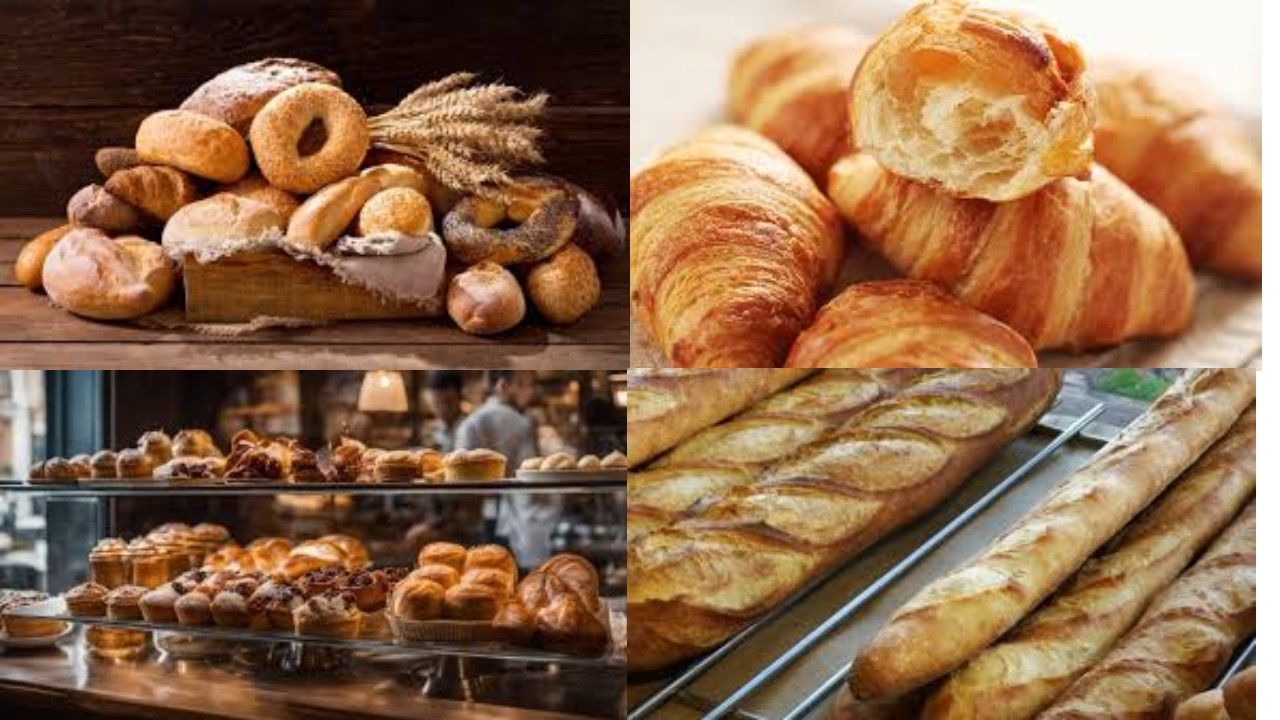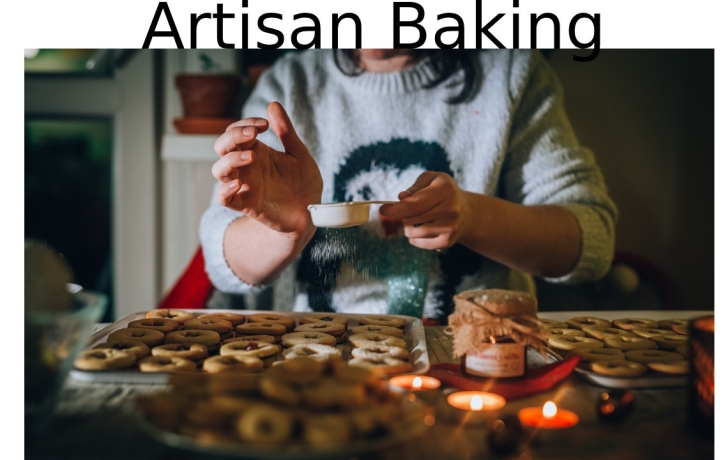
Artisan baking is both an art and a science. Rooted in time-honored techniques, it emphasizes craftsmanship, quality ingredients, and attention to detail. While traditional methods remain the foundation, modern twists have breathed new life into the craft, making it more accessible and exciting for today’s bakers. Whether you’re a seasoned professional or a curious home baker, artisan baking offers endless opportunities to create breads and pastries that are as beautiful as they are delicious.
What Makes Baking “Artisan”?
By definition, artisan baking is about focus on craftsmanship and natural processes. Artisan baked goods do not come from a conveyor belt; rather, these products are baked in smaller batches, and sometimes even by hand, using few simple high-quality ingredients. Emphasis is upon flavor, texture, presentation, and each loaf or pastry takes pride for the one that is created.
Major characteristics of artisan baking:
Slow fermentation: Sourdough and other breads rely on long fermentation periods to develop complex flavors.
Minimal ingredients: Most artisan recipes use just flour, water, salt, and natural leavening agents, avoiding artificial additives or preservatives.
Handcrafted techniques: Shaping dough, scoring patterns, and baking in traditional ovens are all part of the artisan approach.
The Allure of Traditional Techniques
The heart of artisan baking is the traditional methods used, many of which have been passed down through generations. Techniques like kneading, proofing, and baking in wood-fired ovens create a connection to history and culture. Moreover, they produce superior results—think of the golden crust of a rustic sourdough or the delicate flakiness of a handmade croissant.
Sourdough baking is perhaps the last and highest expression of traditional artisanal practices. Made with a natural starter instead of commercial yeast, sourdough takes patience and skill to deliver a bread that tastes full-on, chewy crumb texture, and longer shelf life. The mastery of sourdough is a rite of passage for many in artisanal baking.
A Modern Twists on Classic Techniques
Traditional methods lay the foundation, while modern twists expand the possibilities of artisan baking. Innovative flavors, ingredients, and tools have catapulted the craft to unparalleled heights.
For instance, bakers today experiment with ancient grains such as spelt, einkorn, and teff to add depth and nutritional value to their breads. Others infuse their creations with unexpected flavors like matcha, lavender, or activated charcoal, combining old-world techniques with contemporary tastes.
Technology has also been used in modern artisan baking. With kitchen scales of high precision, temperature-controlled proofing boxes, and advanced ovens, bakers are able to be consistent with the craft without losing its essence. Social media sites like Instagram and YouTube have further democratized artisan baking, making it possible for enthusiasts to get tutorials, inspiration, and global baking communities.
Best Artisan Baking Creations
Artisan baking encompasses a huge range of products, each with its own unique appeal. Here are some favorites:
1. Sourdough Bread
This iconic loaf, with its crunchy crust and tangy crumb, represents the pinnacle of artisan breadmaking. It pairs beautifully with butter, cheese, or soup, and its versatility makes it a staple in kitchens worldwide.
2. Rustic Baguettes
The French baguette, with its airy interior and crispy crust, is a classic that requires the skillful shaping and baking techniques. Artisan versions often feature variations like sesame or poppy seeds.
3. Focaccia
This Italian flatbread is a canvas for creativity. Topped with olive oil, fresh herbs, vegetables, or even edible flowers, focaccia is as visually stunning as it is delicious.
4. Laminated Pastries
From croissants to danishes, laminated doughs require precise folding and layering of butter and dough to achieve that signature flakiness. Modern interpretations often feature fillings like salted caramel, pistachio cream, or fruit compotes.
5. Specialty Cakes and Tarts
Artisan bakers are masters of transforming simple ingredients into showstopping desserts. Think flourless chocolate tarts, fruit galettes, or multi-layered cakes adorned with fresh flowers and seasonal fruits.
Tips for Aspiring Artisan Bakers
Getting started with artisan baking intimidates many, but with the correct mindset and tools, anybody is capable of mastering it. Here are some tips:
Start with the basics; begin with simple recipes that will build your confidence before delving into more complex techniques like making no-knead bread, focaccia, and so on.
Invest in some quality tools: Bench scrapers, dough whiskes, proofing baskets, and digital scales may vary in price, but an investment in quality would ultimately make a difference.
Be patient: Artisan baking takes longer fermentation times and more labor-intensive processes. Enjoy the process and be rewarded with your efforts.
Be bold: Don’t be afraid to try new flavors, flours, or methods. Baking is an art and a science; creativity is key.
Learn from others: Join baking communities, watch tutorials, and read books by famous bakers to expand your knowledge and skills.
Why Artisan Baking Matters
Artisan baking is more than a culinary pursuit; it’s a celebration of tradition, craftsmanship, and community. In a world where convenience and mass production have dominated, artisan bakers remind us of the value of quality, authenticity, and the human touch.
Baking itself can be a healing activity that helps individuals get into a mindful place, in tune with their food.
Sharing artisan bread with friends and family gives happiness and bonds them closer together; this is even more rewarding with all the effort.
Embracing the Art of Artisan Baking
Whether you are kneading dough by hand, or you are creating intricate pastries, or you simply enjoy the fruits of your labor, artisan baking can be a fulfilling and delicious journey. By combining traditional techniques with modern creativity, you can create baked goods that not only are a treat to the palate but also reflect the beauty of culinary artistry.
So, raise your sleeves, dust your palms with flour, and then start your journey in the art of artisan baking — where tradition meets innovation and every loaf tells a story.






